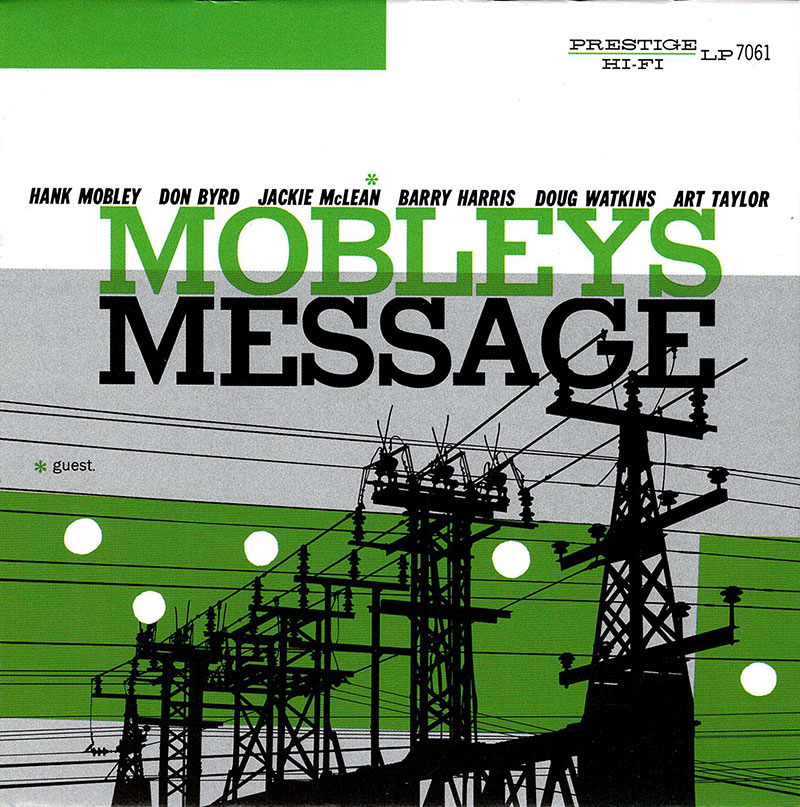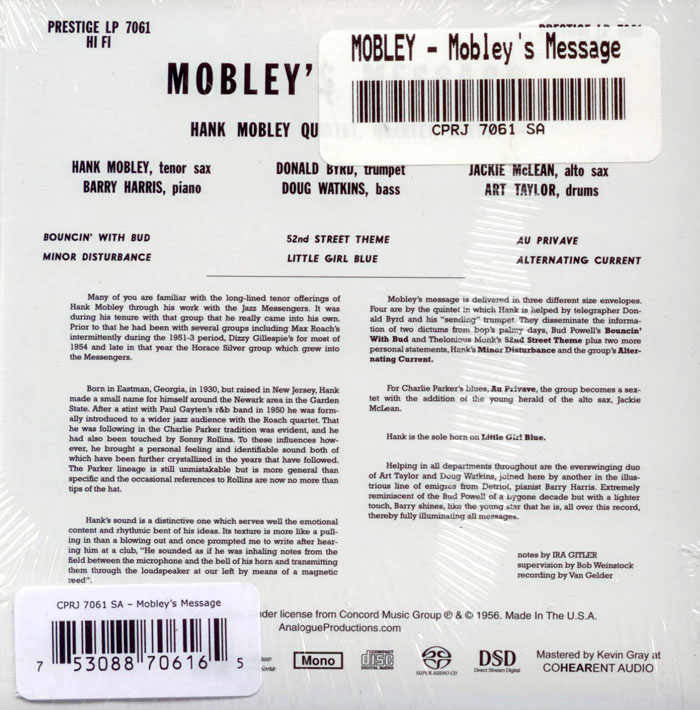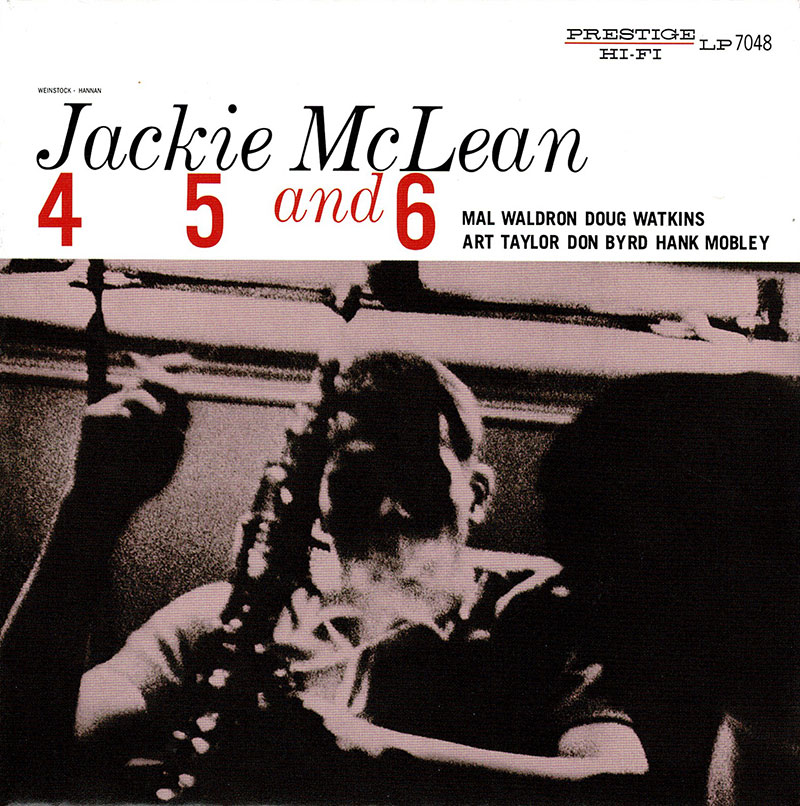Logowanie
Dziś nikt już tak genialnie nie jazzuje!
Bobby Hutcherson, Joe Sample
San Francisco
SHM-CD/SACD - NOWY FORMAT - DŻWIĘK TAK CZYSTY, JAK Z CZASU WIELKIEGO WYBUCHU!
Wayne Shorter, Freddie Hubbard, Herbie Hancock, Ron Carter, Elvin Jones
Speak no evil
UHQCD - dotknij Oryginału - MQA (Master Quality Authenticated)
Chesky! Niezmiennie perfekcyjny
Winylowy niezbędnik
ClearAudio
Double Matrix Professional - Sonic
najbardziej inteligentna i skuteczna pralka do płyt winylowych wszelkiego typu - całkowicie automatyczna
Hank Mobley
Mobley's Message

Hybrid Mono SACD for sale individually and as part of Analogue Productions’ Prestige Mono Series
Mini "old style" gatefold jacket packaging
Critic Leonard Feather asserted that Hank Mobley was “the middleweight champion of the tennor saxophone,” meaning that his tone wasn’t as aggressive and thick as John Coltrane or Sonny Rollins, but neither was it as soft and cool as Stan Getz or Lester Young. Mobley helped inaugurate the hard bop movement: Jazz that balanced sophistication and soulfulness, complexity and earthy swing, and whose loose structure allowed for extended improvisations.
Born in Eastman, Georgia, in 1930, but raised in New Jersey, Hank’s long-lined tenor offerings became a staple for pianist Horace Silver’s group, which evolved into the ‘50s super quintet co-led by Art Blakley, dubbed the Jazz Messengers. Their groundbreaking first album for Blue Note, 1955’s Horace Silver and the Jazz Messengers, was a hard bop landmark, featuring sophisticated solos and bright, almost funky rhythms. Mobley hit his peak in the first half of the 1960s with hard bop cornerstones like Soul Station, No Room for Squares, and A Caddy for Daddy.
On this Prestige offering, Mobley delivers his signature swinging style in three different variations. Four numbers are by the quintet in which Hank is helped by telegrapher Donald Byrd and his “sending” trumpet. They disseminate the information of two pronouncements from bop’s palmy days, Bud Powell’s “Bouncin’ With Bud” and Thelonious Monk’s “52nd Street Theme,” plus two more numbers, Hank’s “Minor Disturbance” and the group’s “Alternating Current.”
For Charlie Parker’s blues, “Au Privave,” the group becomes a sextet with the addition of a young turk of the alto sax, Jackie McLean.
Hank is the sole horn on “Little Girl Blue.”
Originally released in 1956
Donald Byrd, trumpet
Barry Harris, piano
Jackie McLean, alto Sax
Hank Mobley, composer, tenor sax
Art Taylor, drums
Doug Watkins, bass






































